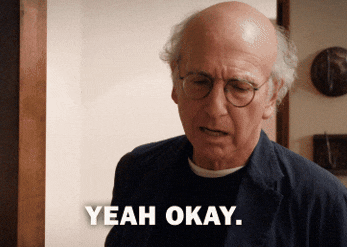Ask Lemmy
A Fediverse community for open-ended, thought provoking questions
Please don't post about US Politics. If you need to do this, try [email protected]
Rules: (interactive)
1) Be nice and; have fun
Doxxing, trolling, sealioning, racism, and toxicity are not welcomed in AskLemmy. Remember what your mother said: if you can't say something nice, don't say anything at all. In addition, the site-wide Lemmy.world terms of service also apply here. Please familiarize yourself with them
2) All posts must end with a '?'
This is sort of like Jeopardy. Please phrase all post titles in the form of a proper question ending with ?
3) No spam
Please do not flood the community with nonsense. Actual suspected spammers will be banned on site. No astroturfing.
4) NSFW is okay, within reason
Just remember to tag posts with either a content warning or a [NSFW] tag. Overtly sexual posts are not allowed, please direct them to either [email protected] or [email protected].
NSFW comments should be restricted to posts tagged [NSFW].
5) This is not a support community.
It is not a place for 'how do I?', type questions.
If you have any questions regarding the site itself or would like to report a community, please direct them to Lemmy.world Support or email [email protected]. For other questions check our partnered communities list, or use the search function.
Reminder: The terms of service apply here too.
Partnered Communities:
Logo design credit goes to: tubbadu
view the rest of the comments


"Can't teach an old dog new tricks" is one that's very pertinent to my life right now.
So, I was a pretty dedicated musician in my younger years, but I've never quite gotten around to learning how to produce music digitally. Recently, I've been trying to learn. Thing is, since I'm in my early 30s, I'm only just now hitting that age where my neuroplasticity isn't what it was when I was 20, and learning things is starting to become noticeably a little more difficult.
So, that's where I think the expression comes from. You get older, you try to learn something new, you underestimate how much more difficult learning that new thing is at your current age (because, honestly, you have no way to gauge how hard it'll be until you're doing it), the challenge gets the better of you, and now you have to admit defeat.
"Can't teach an old dog new tricks" is basically a different way of saying "No, no! I'm not owned!! I didn't lose!!!" It's a way of shielding oneself from the sting of defeat by framing it as "well, that's just the way things are when you're older." It's not that you couldn't rise up to the challenge of learning. You just cannot teach old dogs new tricks, and that's a fact. Don't you hear people say that all the time? Why would people say it so much if it weren't true? So, yeah. I didn't lose. I'm not owned.
It's an especially harsh process when you're learning to do something related to something you already know really well, and struggling with it, like I am with music production. It makes you question how well you really knew that thing in the first place. But, like I said, I'm only in my early 30s. If I were 60 and struggling to learn a new way to do something I've been doing my whole life, I'm sure it'd be wayyy more demoralizing. I'm sure I'd want to guard my feelings from that.
So, I get why the expression exists. I just don't think it holds any real weight. People treat it like it's some fact of life, but it's just an excuse. You've just gotta keep pushing, be prepared to accept failure when it rears its ugly head, and then muster the energy to get back up and get back on as many times as you can before you're beat. Easier said than done, though.
I reckon if you focus on learning how to learn in your 20s, then you can really head off that aging problem in a big way (not completely, but a fair bit).